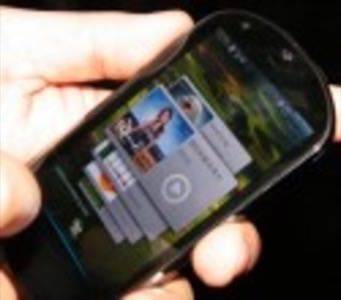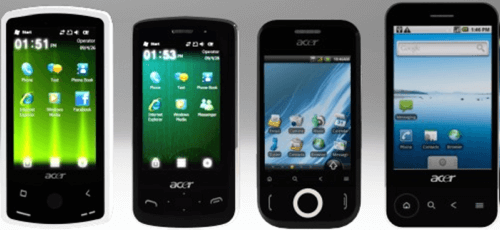PC maker Lenovo announced today that the company expects its mobile Internet products to account for 10%-20% of revenue in five years’ time. This statement comes from President and COO, Rory Read, delivered at a media briefing that coincided with the launch of the newest Lenovo “LePhone” smartphone device in China. With the phone, a handset running the Google Android mobile OS, Lenovo hopes to grab a good-sized chunk of the still-emerging Chinese smartphone market.

Interestingly enough, Lenovo had, in early 2008, sold off its mobile phone unit to focus solely on its PC business. But as the financial crisis hit, companies delayed refreshing their corporate desktops and laptops in an effort to save money, a move which heavily impacted Lenovo’s bottom line. Last year, the company decided to once again diversify their offerings by bringing back the mobile unit.
In January, Lenovo launched an improved “Ophone” device at the Consumer Electronics Show in Las Vegas, its first smartphone since the $200 million reacquisition of the once-discarded mobile business, returned to the company in November of last year. At the time, Lenovo execs said the phone would be central to the company’s mobile strategy.
Today, they’re echoing that sentiment. According to Chief Executive Yang Yuanqing, mobile Internet devices will overtake traditional PCs in the next five years. And Read reminded everyone that the smartphone market in China was only now emerging. “It’s just the beginning,” he said.
PC Manufacturers Focused on Mobile
Lenovo isn’t the only PC manufacturer making changes in this direction, with smartphone launches laser-focused on China especially. Dell, for example, announced in November they would launch an Android-based handset called the Dell Mini 3 that would be sold only in Brazil and China to start. The company is also hard at work on an Android tablet, a colorful consumer-targeted device apparently being called the “Dell Streak.”
Acer, too, has a line of smartphones running both the Windows Mobile OS and Android, available outside the U.S. in parts of Europe and Asia.

HP, although still more focused on PCs, is set to launch its first “new-wave” tablet in the form of the HP Slate, a multi-touch lightweight device running Windows 7.
As for Lenovo’s claims about the timeframe to mobile’s domination over the PC? Those figures may very well have been snagged from Morgan Stanley’s Internet analyst, Mary Meeker. In her latest “state of the Internet” report, she predicted that the mobile Internet market will be bigger than the desktop Internet market within five years. She also noted in particular how fast mobile Internet has grown – even faster than its desktop counterpart ever did.
For those who like to segment the phases of the Internet’s growth, the current era, aka this mobile surge, represents the fifth major technology cycle, she says. Previously, we had the mainframe era of the 1950s and 60s (counts for two), the mini-computer era of the 1970s and the desktop Internet era of the 80s. The new mobile cycle is being driven by the spread of 3G technology, now reaching 20% of the world’s cellular users.

















